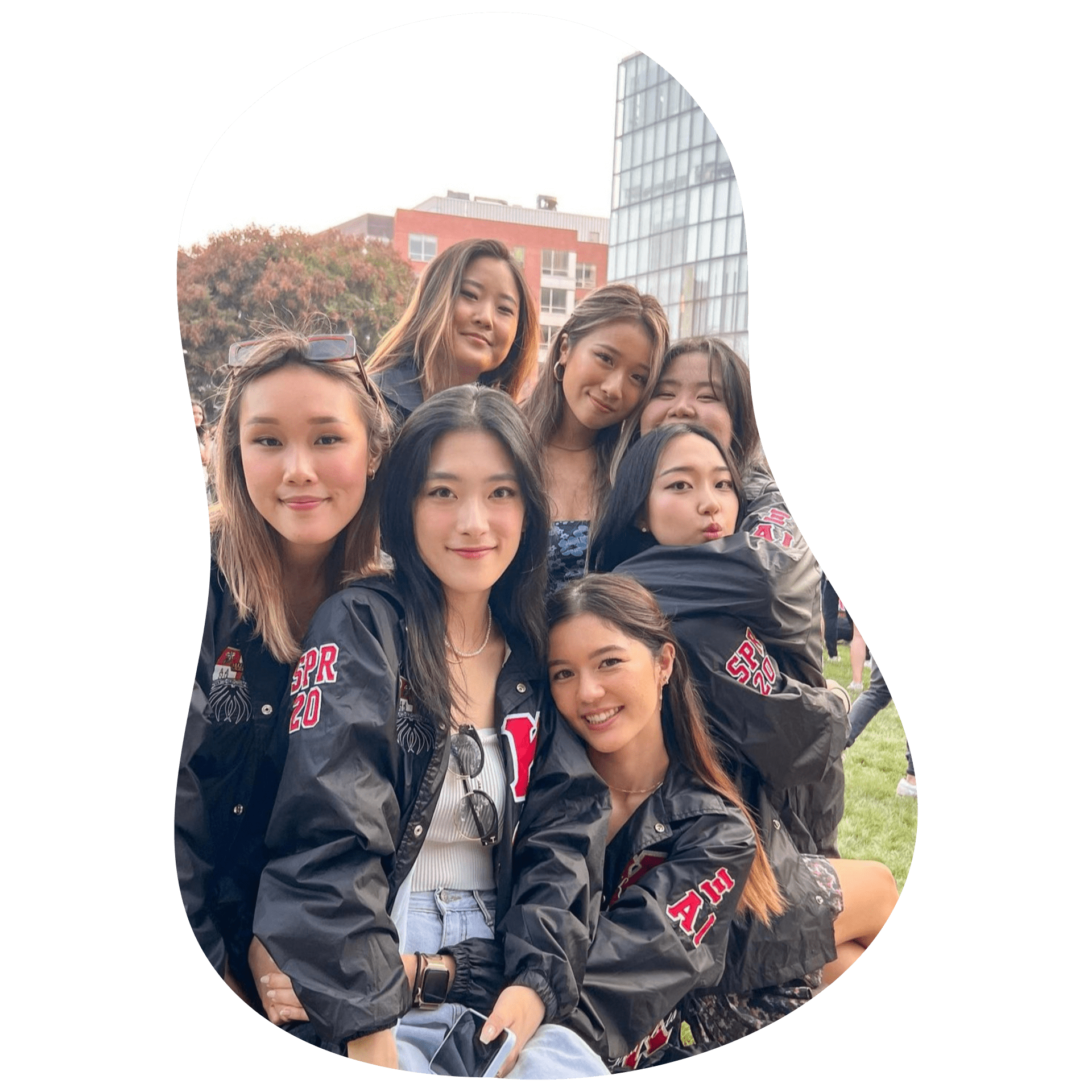
Join Fraternity and Sorority Life
Frequently Asked Questions
What are fraternities and sororities?
Is there Fraternity or Sorority housing?
How do you join Fraternity & Sorority Life?
Are there costs associated with joining?
What is it like to be a New Member in FSL?
If you feel that you or someone you know is participating in inappropriate activities as a result of membership in a fraternity or sorority, or if you are aware of such activities occurring, you are encouraged to contact the Center for Student Involvement.
Who is eligible to join a fraternity or sorority?

How to Join
The Interfraternity Council (IFC) hosts semi-structured recruitment (or rush). Recruitment kicks off with an IFC BBQ where potential new members have the opportunity to meet each chapter. Chapters participating in recruitment host a series of events to further meet potential new members and share information on their brotherhood. Potential new members are required to attend an IFC informational session hosted by the Council and Northeastern University’s Fraternity and Sorority Life staff. After the initial recruitment events, chapters will extend bids (invitation to membership) to potential new members. Please note that not all potential new members may receive a bid.
Students that do not participate in fall recruitment or do not receive a bid have the opportunity to participate in informal recruitment in the late fall and spring semesters. However, not all chapters participate in informal recruitment. Students and families that are interested in learning more about the Interfraternity Council can find more information on the IFC website and Instagram.
The Multicultural Greek Council (MGC) chapters host intake events at the beginning of the fall and spring semesters. Every chapter has its own intake process based on its individual chapter requirements. The Council holds a kick-off event at the start of each semester for prospective new members to learn about the different organizations and what each chapter has to offer. Intake requirements may include attending chapter events and information sessions, interviews, and achieving a minimum GPA.
Students and families that are interested in learning more about the Multicultural Greek Council can find more information on the Council’s website and Instagram.
After an aspirant’s application is approved, they begin the membership intake process. The membership intake process varies by chapter as each organization holds its own guidelines and requirements. Please note that first years are not eligible to join an NPHC organization their first semester, as they must first obtain a collegiate GPA.
Students interested in joining the National Pan-Hellenic Council can learn more about the intake process through the Council’s Instagram and individual chapter websites.
Students that are not interested in or unable to attend Primary Recruitment may be eligible to participate in Continuous Open Bidding throughout the fall and spring semesters. Please note that not all chapters may be eligible to participate in COB. Students and families that are interested in Panhellenic Recruitment are encouraged to visit the Northeastern University Panhellenic Council website.
Why FSL?
Joining a fraternity or sorority provides an opportunity to gain a support group that will help transitioning to college significantly easier. Members cultivate friendships that will last a lifetime while deepening their connection to campus. You’ll receive access to resources to help encourage and achieve academic goals. Members can develop leadership skills with hands-on opportunities to practice and lead at many different levels within the FSL community. It is a way to maximize involvement on campus and in the community. Our students serve the community through active participation in service projects and philanthropy events. The network of alumni can help to develop priceless co-op and career opportunities. Overall, you’ll maximize the college experience while having a lot of fun!

Why FSL?
Joining a fraternity or sorority provides an opportunity to gain a support group that will help transitioning to college significantly easier. Members cultivate friendships that will last a lifetime while deepening their connection to campus. You’ll receive access to resources to help encourage and achieve academic goals. Members can develop leadership skills with hands-on opportunities to practice and lead at many different levels within the FSL community. It is a way to maximize involvement on campus and in the community. Our students serve the community through active participation in service projects and philanthropy events. The network of alumni can help to develop priceless co-op and career opportunities. Overall, you’ll maximize the college experience while having a lot of fun!
